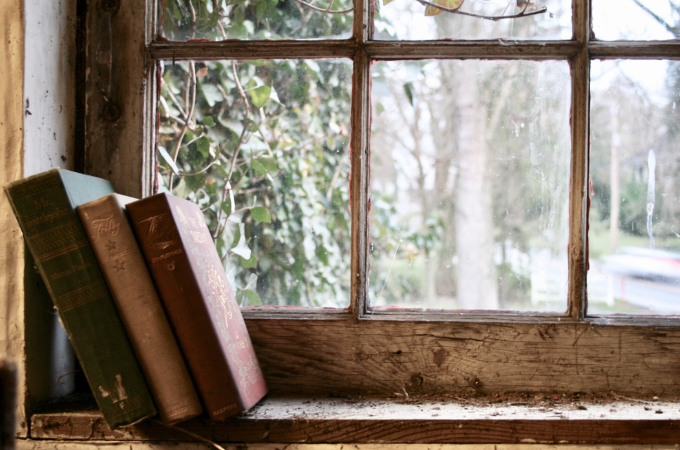
Yes, I once had ambition, but only one, to write books that would be found in the libraries of the future. I would study the great ones and then become one of them. My name would be chiseled into the entrances of prestigious universities and my photo would grace the screens of TV channels and the pages of magazines. But as the folk wisdom says, if you want to hear Allah laugh, just tell him your plans.
So, fate, the only book that matters, intervened, and I had to drop out of school to help my sick father support the family. Working as a street vendor, selling various items depending on the season, was the only work I could get. I had to cease my seasonal profession a month ago though because Qaid Moussa, my Lord, as I like to call him, confiscated my fruit handcart. He said that it ruined the beauty of my city, despite the fact that I couldn’t see any beauty around me, just litter strewn gutters and a layer of wind-blown dust smudging the windows of tin-roofed hovels. He threatened to put me in jail if he found me selling things in public again.
In my city of Agadir, it is impossible to distinguish between the public and private spheres. Asays, a historical public space where people used to congregate and debate current issues, is now transformed into a car parking lot to generate revenue for the local municipality. The ragged army of young jobless people now prohibited from laying out their simple wares to sell and their places taken by the Mercedes sedans of the scornful rich. I wonder if my Lord has ever visited the beach to count the number of hotel sun loungers that obstruct swimmers’ paths, and how many café tables that block the sidewalks surrounding Asays’ square. Anyway, my Lord’s eyes, or more precisely the motherfucker’s eyes, can only see my small cart at the far end of the road heading to the plaza and calls me the itch in his eye.
But, as of today, I stop complaining. I choose to reconnect with my old self, the self I abandoned when I last walked out of high school three years ago. Maybe I’ll even pluck up the courage to retake my Baccalaureate on my own one day. For now, I want to read something that will transport me away from my current problems and into another world, away from this world of my Lord and into a better one.
I open the dusty box containing my school supplies and strew all of my old school stuff on the floor in search of stories to read. I find among the detritus of that time three books that I forgot to return to my high school library. To be honest, I have never had the chance to read them. They have been in the box since I left school. The first book, Mohamed Choukri’s For Bread Alone, is in Arabic; the other two are in English. One of them is Ralph Ellison’s huge novel Invisible Man. The second is an essay by Virginia Woolf titled “A Room of One’s Own.” I should admit that my English is not up to scratch to properly comprehend these two books. Yet, my love of the language will drive me to flip the pages and enjoy the experience of reading without full comprehension. The most important thing for me is to read and fly away from these motherfuckers around me.
But my thatch-roofed cottage in the Bou Tasra neighborhood is not the best place for reading at all. My four younger brothers are obnoxious and disruptive. For them, as was the case with me years ago, books are simply toys to play with. So, it will be a good idea to walk outside and find a peaceful spot in the open next to the high building facing my neighborhood. I hold the three books in my hand and leave the room. Inna, my mum, shouts as I open the front door, “Brahim, bring two loaves of bread and some olive oil for breakfast.”
“Where?” I ask.
“Go to Moulay Ali’s shop. The notebook is on the table.” With my books in my hands, I grab the blue credit notebook and dash to the store. I want to complete this tedious task as soon as possible before my desire to read fades again.
The shopkeeper looks at me with glassy eyes and says, “Three months now. Tell your father to pay.”
“He’s going to pay you. Just be patient. May God bless you and your children.”
“My children? Are they going to eat these notebooks? I’m fed up with this job. Throw away those books and help your father pay your way.” I don’t reply since he has constantly said that to me. I wait for him to complete his writing of the credit in the notebook. He mumbles something that I don’t understand. I assume it is an insult again. But I don’t want to make an issue because my family needs him. He is the only shopkeeper, among the five in the neighborhood, who still allows us credit. He tosses the two loaves of bread and the small bottle of oil on the counter and reminds me of the payment for the third time. I take my shopping items and turn on my heels.
My brothers are playing five stones after we finish eating breakfast. I put my books in a plastic bag, and I am ready to go out. Before I reach the doorway, baba, my father, shouts my name, coughing. I waited until his coughing stopped and I said, “Yes, baba.”
“Bring my medicines from the pharmacy. Tell him I will pay him soon,” he says in a feeble voice, shaking and still coughing. I dash to the drugstore, a thirty-minute walk away. My father’s weekly medicines are known to the chemist. He gets them and jots down their prices in a notebook, just as Moulay Ali had done. The only difference now is that the chemist keeps the notebook with him. He gives me a kind grin and wishes my father a speedy recovery. I grab the plastic bag and walk away. I feel relieved since he has not complained about the payment delay.
My brothers are now playing football with a shriveled plastic ball in a dusty open place near a row of cottages. It’s 10 a.m. and I wonder why they are not at school now. To take advantage of the temporary silence, I enter the room and place my three books in front of me. I am ready to dive into them.
I take up For Bread Alone and gaze at the big cover photo of the author, or rather, he gazes unblinkingly at me. I am soon lost in thought, wondering why Mohamed Choukri penned this title. Why did he write about bread? He most likely grew up impoverished like me, and the book functions as a kind of diary of his survival in a world of famine and misery. I can probably write a book called For Bread and Olive Oil Alone. It’s boring, isn’t it? Nobody will read a book with such a dull title. Yeah, it represents a dull life, but what will my book add to the library of the future? Nothing! Bread with olive oil or bread on its own. These are both signs of extreme poverty. Why am I looking for value? It’s the same problem. Nothing has changed, man. Choukri ate bread alone in the 1940s, but Brahim eats bread dipped in a bowl of oil on Tuesday, March 27th, 1990. Not much has changed, man. Choukri, in his twenties, got lost in Tangier’s neighborhoods. I am twenty, and I am chased in Agadir streets. Nothing has changed, man and I think nothing ever will.
I am reading the first page. Bread is the most often used term, confirming my prediction about Choukri’s poverty. I have read the following passage three times to make sure I understand the suffering of the writer:
One afternoon I could not stop crying. I was hungry. I had sucked my fingers so much that the idea of doing it again made me sick to my stomach. My mother kept telling me: Be quiet. Tomorrow we’re leaving for Tangier. There’s all the bread you want there… When my father came in, I was sobbing, and repeating the word bread over and over. Bread. Bread. Bread. Bread. Then, he began to slap and kick me, crying: Shut up! Shut up! Shut up! If you’re hungry, eat your mother’s heart.
The reaction of the father, Choukri’s Lord, throws me for a loop. Then all at once, I remember what the motherfucker, Qaid Moussa, told me when I asked him what I should eat now that my hand cart is gone, and he ridiculed me by saying in Darija, “Eat your mother.” I wanted to punch him that day, but he was surrounded by six strong auxiliary forces. So, I kept my cool and looked at my sales thrown into the municipality’s truck along with my cart. My eyes welled up with tears, but I held up my dignity. I went home and wept all day. Before I finish reading the first page of Choukri’s book, my mother shouts again, “Brahim, I need some carrots and potatoes for lunch. Go to your aunt and ask her some.” I run three blocks to my aunt’s cottage. She puts three potatoes, three carrots, and four oranges in a black plastic bag and hands it to me.
My mother is doing the dishes when I arrive home. I returned to my corner after placing the bag next to her feet. Choukri is still there, gazing at me. I open the book and choose to reread the opening page. My mum yells again when I am halfway through the page, “Get up. Get off your tail and do something worthwhile in your life. Why don’t you go and collect the trash in front of the door? I’ll take your father outside for some fresh air.” She stands at the kitchen entrance, her hands driving flies away from her face. I want to scream that I need some reading time to reach my goal. But I figure it’s a waste of breath because no one in my cottage understands what reading is, let alone how important it is to grow and be a real man. I sweep the floor beside our cottage with a broom. I put the trash in a plastic bag. Because there are no street garbage bins in the Bou Tasra neighborhood, I have to walk to what we call the river even though, at this time of year, it is only a grey trickle to dump our bags among the piles on the bank. When I return, it is noon. My brothers are still playing with the plastic ball while my mother is laying the table for lunch.
Because my brothers say they have school in the afternoon, I assume I will have plenty of time to read. I sit in the corner on a sheepskin rug, surrounded by three cushions. I make sure I am out of my mother’s sight this time. She is sleeping in the other room. When I open the book, a faint voice emerges through the front door. “Brahim! Brahim! Come!” I put the book down and walk out to my father, who is sitting in his wheelchair at the front door, coughing and gazing at people coming and going. “Go to the post and see if… my pension has arrived,” he says in an almost inaudible voice.
With a sigh, I walk to the post office despite knowing there will be nothing there. It is only the 27th and military pensions don’t arrive until the seventh day of each month. But his illness has made him so feeble that I never dare contradict him. At the post office, I wait for an hour before the cashier tells me there is nothing for my father. When I relay this information to my father, his countenance darkens. He stares at me for a moment, as if I must be lying.
I return to my books in the corner. I take up Ralph Ellison’s Invisible Man, forgetting that I haven’t finished Choukri’s novel yet. I am a little intimidated by the book’s size, but I decide to give it a shot. I come to a halt at the first sentence of the prologue, “I am an invisible man.” I sigh, for my English is quite good enough to fully understand this line. I look up at the thatch roof over my head. “I am an invisible man,” I re-read it aloud twice. I put the book down. I wonder, what a precise depiction of my predicament! True Mr. Ellison, I am invisible both inside and outside my cottage. Nobody cares about me. Nobody notices me in front of them. They only see themselves in me, or rather, they see in me what they want to see in themselves. I pick up the book and continue reading. I am about to finish the first paragraph of the novel when I hear a knock at the front door. My mother springs to feet and dashes to my room. She says, kicking the two books on the floor, “Put the room in order. Quick! Arrange pillows and hide these useless papers. We have visitors. Act quickly.”
Presto, I arrange the three cushions against the wall and place the rug in the center of the room for decoration. I chase the flies with a towel. I then collect the school supplies and stuff them back in the box. I place the three books on the top of the box. Four women have walked in. They’ve come to inquire about my father’s health. My mother has most likely spread the news of my father’s serious health issues, hoping for at least some pity but preferring some charity. Leaving them to their cooing and muttering, I exit the cottage and wait at the threshold. I can hear my mum urging the women to have a cup of tea. They accept and I am asked to go shopping. I grab the credit notebook and dash to Moulay Ali’s store to bring mint and bread. When I return, one of the women has sat on my books in the corner. So, I have to wait for them to finish their tea to continue my reading. The women have gossiped for two long hours, while I am caring for my two younger brothers who have returned from school. They are not allowed to enter the house until the guests leave.
Late at night, when everyone has gone to bed, I take up the three books. Because of the guest woman’s weight, the cover and the first page of Invisible Man have been pulled off. I have not complained to my mum. This time I pick up Virginia Woolf’s essay, “A Room of One’s Own.” It is short compared to the other two books. I’ll probably complete it tonight. One sentence is highlighted in red on the first page: “A woman must have money and a room of her own if she is to write fiction.” I read it twice. Then I ask myself, Isn’t it also true for me? I must have money and a room of my own if I want to write fiction or even just to read some. That’s it, if I want to read and write books, I need money and a space of my own.
As my mother’s voice pierces the silence again, I am still pondering about this lengthy statement and how to apply it in my life. “Turn off that darn light and go to bed. Our electric bill is too much already,” she shouts. After reading the title three times, I turn out the light. I attempt to find a connection between the three authors. They have all sent me vital messages to think about. Then I hear a voice in my mind, saying, “Get yourself back. Be a man. You are not stupid. Don’t kill your dream. Use your head and act. My philosophy teacher once shared a powerful quote from a renowned philosopher, whose name I have forgotten, “I think, therefore I am.” However, I believe this is misleading. I’m not going to spend the rest of my life thinking. This is ridiculous. Too much thinking gives motherfuckers more time to exploit the invisible people. Simply thinking isn’t enough, Brahim. True existence stems from action. Take charge and stand tall. Yes, I act, therefore I am. That’s it.” I lie down in darkness, waiting for dawn to come. My brothers, who did not find anything to eat for dinner last night, are fast asleep in the other corner of the room, their bellies growling.
Before everyone is up the next day, I start packing, cramming a change of clothes in my backpack. I return the books to the box. I tightly bind it up with long scraps of old cloth. I walk into the kitchen and grab a big knife, the one that my father used last year to slaughter the small sheep for the big feast. I squeeze it inside my backpack and sling it over my shoulder. As I walk out of the kitchen, I stomp on a cockroach under my foot, yearning I could do the same to Qaid Moussa and other motherfuckers in my city. Then, on tiptoe, I leave my place where everything I do and am are doomed to remain unfinished. I go out to make the world see just who I am, stake out a space of my own, and somehow slice my own bread among all these motherfuckers.
Sorry, Inna and baba. I’m not disobedient, but I have to leave. As the Amazigh saying goes, one dies leaving nothing, and one is born finding nothing.
Photo by Faith Enck on Unsplash



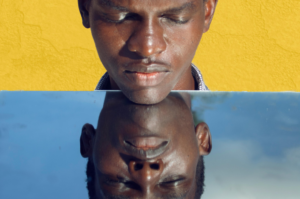
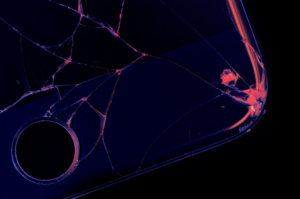


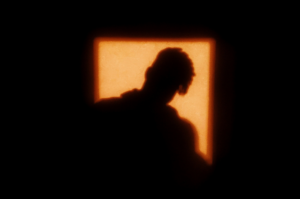
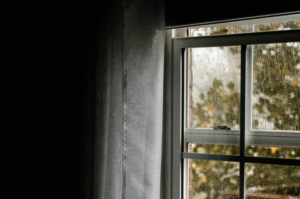

Mifa January 29, 2024 22:43
Such a poignant story. Well written. Full of mundane wisdom through the inexperienced eyes of a young man yearning for more from his life. I really enjoyed this!